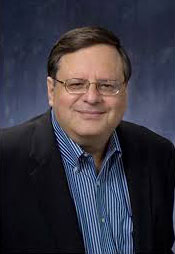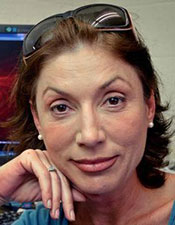Juan Carlos Campuzano
Distinguished Professor, University of Illinois at Chicago
Distinguished Fellow, Argonne National Laboratory

Juan Carlos Campuzano
Former UWM Student Receives Major Prize in Condensed Matter Physics
Juan Carlos Campuzano, who did his B.Sc and Ph.D. in Physics at UWM, has been awarded the prestigious 2011 Oliver E. Buckley Condensed Matter Physics Prize. Campuzano, who worked with UWM Professor Robert Greenler, is currently Distinguished Professor at the University of Illinois at Chicago and Distinguished Fellow at Argonne National Laboratory.
This is the American Physical Society’s major prize in Condensed Matter Physics and it has been awarded “for innovations in angle-resolved photoemission spectroscopy, which advanced the understanding of the cuprate superconductors, and transformed the study of strongly-correlated electronic systems.”
Professor Campuzano’s research contributions include the observation of conformal invariance at the Ising critical point, the Luttinger scaling of the Fermi volume in high temperature superconductors, the observation of an extended singularity in their energy spectrum, momentum distribution sum rules in photoemission, development of atomic resolution holography, the spectral function interpretation of the photoemission lineshape, the pseudogap in the energy spectrum of underdoped superconductors, Fermi arcs and their scaling, the observation of spontaneous time reversal symmetry breaking in high temperature superconductors, etc.
Juan Carlos Campuzano has a B.Sc. in Applied Mathematics and Physics (1973) and a Ph. D. in Physics (1978) from the University of Wisconsin-Milwaukee. He was a Post-doctoral Fellow and then Research Associate at the Donnan Laboratories, University of Liverpool, England (1978-1981 and ), working on photoemission. He was a Research Associate at the Cavendish Laboratory, University of Cambridge (1981-1985), working on 2-dimensional phase transitions and critical phenomena and the development of photoelectron spectromicroscopy. In 1985 he joined the Department of Physics at the University of Illinois at Chicago, and also the Materials Science Division at Argonne National Laboratory in 1987. Juan Carlos Campuzano is a Fellow of the American Physical Society.
Laura Mersini-Houghton
Associate Professor, Physics and Astronomy, University of North Carolina-Chapel Hill
PhD, 2000 (with Dr. Leonard Parker)

Laura Mersini-Houghton
Dr. Mersini-Houghton is an Associate Professor in the Department of Physics and Astronomy at the University of North Carolina in Chapel Hill, NC. After completing her PhD Dr. Mersini-Houghton was a postdoctoral fellow at the Italian Scuola Normale Superior di Pisa from 2000 to 2002. In 2002 she held another postdoctoral fellowship at the University of Syracuse, New York. She spent most of 2003 at the Perimeter Institute for Theoretical Physics in Waterloo, Ontario, Canada prior to accepting a faculty position at the University of North Carolina. In January 2004, she started as a professor of theoretical physics and cosmology and achieved tenure in 2008.
Dr. Mersini-Houghton has developed a theory for the birth of the universe from the landscape multiverse based on the landscape of string theory in 2004-2005, then (with collaborators) derived a series of predictions that could test the theory observationally in 2006.that included five predictions proposed in 2006, four of which have since been observed. These predictions were independently confirmed by data from the Planck satellite experiment in March 2013 and a Large Hadron Collider (LHC) experiment conducted at CERN in 2012. She is also interested in other fundamental topics such as the nature of space and time. This concept is discussed in the book she edited with Rudy Vass titled “The Arrows of Time: A Debate in Cosmology” (Springer Verlag, May 2012). In addition to being a co-editor Dr. Mersini-Houghton contributed to the book as an author of the section discussing the problem of the emergence of time’s arrow. She is currently investigating the problem of information loss in black holes and the effect of Hawking radiation on singularities.
A more complete review of Dr. Mersini-Houghton’s accomplishments is available on her Wikipedia page (Laura Mersini-Houghton).